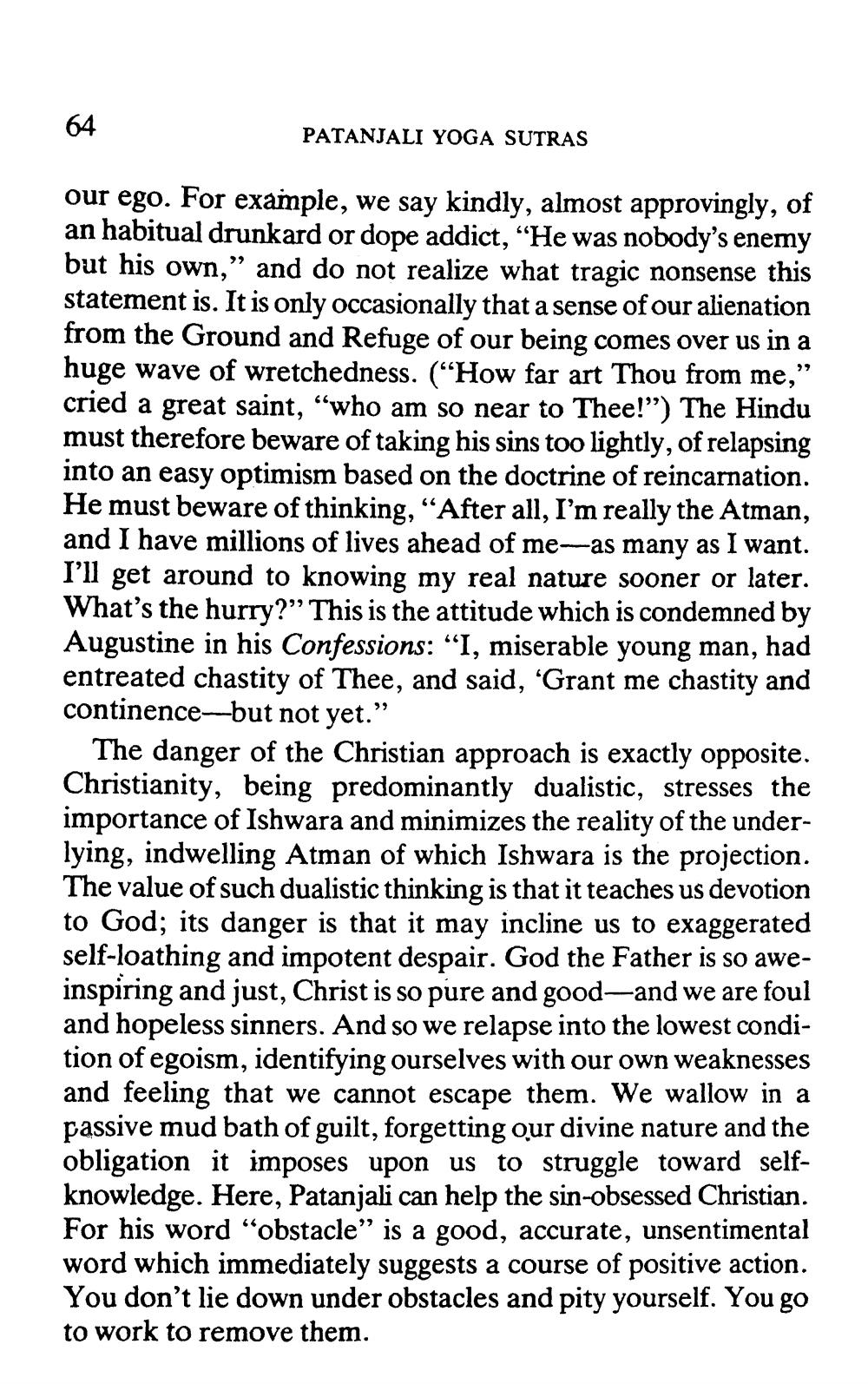________________
PATANJALI YOGA SUTRAS
our ego. For example, we say kindly, almost approvingly, of an habitual drunkard or dope addict, “He was nobody's enemy but his own,” and do not realize what tragic nonsense this statement is. It is only occasionally that a sense of our alienation from the Ground and Refuge of our being comes over us in a huge wave of wretchedness. (“How far art Thou from me,” cried a great saint, “who am so near to Thee!") The Hindu must therefore beware of taking his sins too lightly, of relapsing into an easy optimism based on the doctrine of reincarnation. He must beware of thinking, “After all, I'm really the Atman, and I have millions of lives ahead of me-as many as I want. I'll get around to knowing my real nature sooner or later. What's the hurry?” This is the attitude which is condemned by Augustine in his Confessions: “I, miserable young man, had entreated chastity of Thee, and said, 'Grant me chastity and continence-but not yet.”
The danger of the Christian approach is exactly opposite. Christianity, being predominantly dualistic, stresses the importance of Ishwara and minimizes the reality of the underlying, indwelling Atman of which Ishwara is the projection. The value of such dualistic thinking is that it teaches us devotion to God; its danger is that it may incline us to exaggerated self-loathing and impotent despair. God the Father is so aweinspiring and just, Christ is so pure and good—and we are foul and hopeless sinners. And so we relapse into the lowest condition of egoism, identifying ourselves with our own weaknesses and feeling that we cannot escape them. We wallow in a passive mud bath of guilt, forgetting our divine nature and the obligation it imposes upon us to struggle toward selfknowledge. Here, Patanjali can help the sin-obsessed Christian. For his word “obstacle” is a good, accurate, unsentimental word which immediately suggests a course of positive action. You don't lie down under obstacles and pity yourself. You go to work to remove them.




